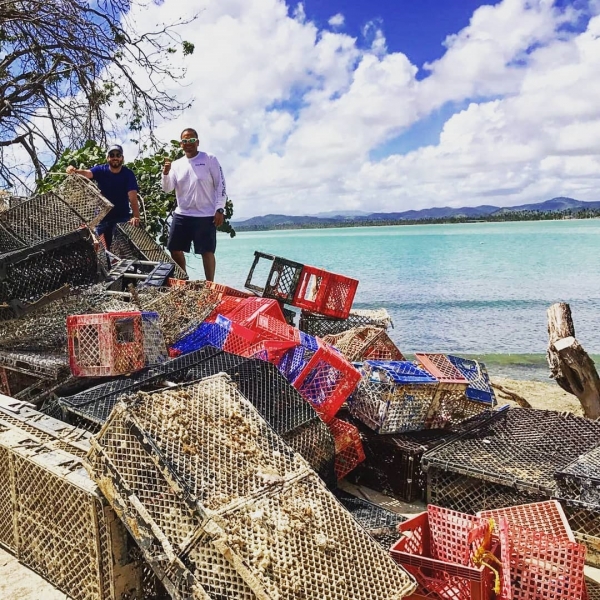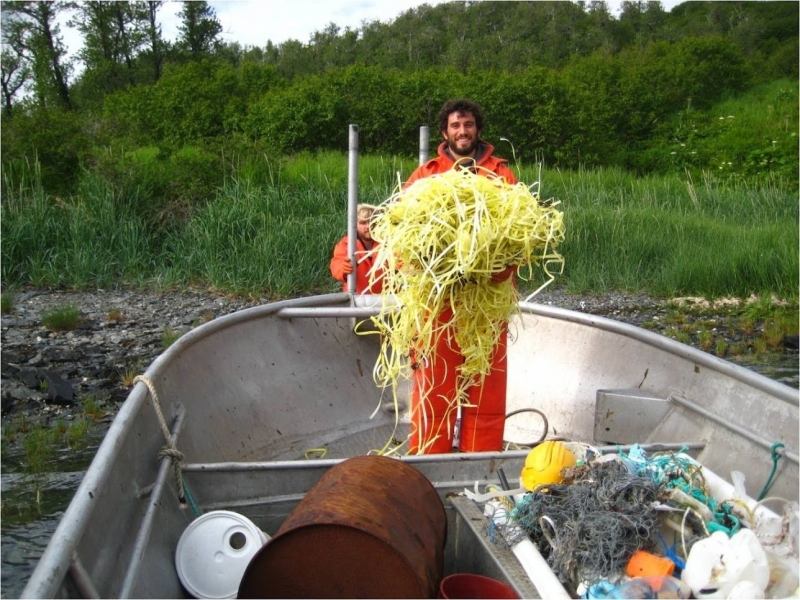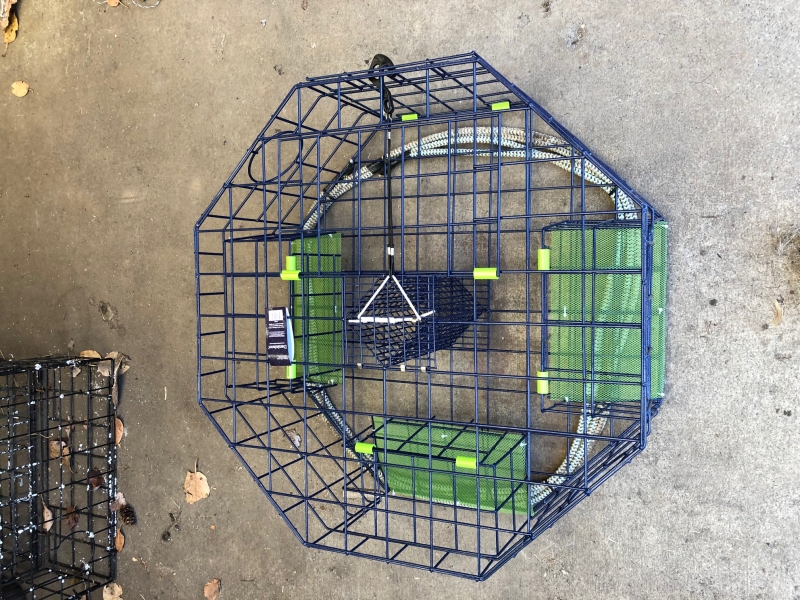Every year, wildlife and marine habitat suffer from the negative impacts of derelict, lost, and abandoned fishing gear. Derelict gear (crab pots, fishing line, nets, etc.) can capture or entangle wildlife (a process called “ghost fishing”), damage sensitive marine habitats such as coral reefs, mangroves, and seagrass beds, and cause hazards to navigation.
In 2018, seven grants were awarded through the Fishing for Energy program, a partnership between the National Fish and Wildlife Foundation, Covanta, and NOAA’s Marine Debris Program, dedicated to reducing derelict fishing gear that is lost, abandoned, or discarded in the marine environment. Funding from the NOAA Marine Debris Program is supporting three of these projects in Alaska, the Pacific Northwest, and the Caribbean.
In the Caribbean, a Fishing for Energy grant was awarded to The Ocean Foundation to work with the Puerto Rico Department of Natural and Environmental Resources to address derelict fishing traps in Puerto Rico. Divers in this area noticed that there was a high amount of unauthorized fishing traps which are causing damage to the local coral reef. The project partners will work with the community and local government to remove these traps, improve the health of the marine environment, and improve compliance with trap fishing regulations.

Another Fishing for Energy grant was awarded to the Island Trails Network in Alaska to reduce the occurrence of entanglement and mortality of marine mammals, while increasing public awareness of the negative impacts of marine mammal entanglement. As part of this project, derelict fishing gear will be removed from locations in the Kodiak archipelago, using small boats to access remote shorelines. In addition, the Island Trails Network will offer training and equipment to fishermen to aid in the removal of marine debris during fishing season closures.

The third Fishing for Energy grant supported by NOAA was awarded to the College of William and Mary - Virginia Institute of Marine Science, who will work to reduce environmental and economic impacts associated with lost fishing gear in Washington State and Alaska. The project will use technology that allows escape panels on the lost trap to dissolve overtime, freeing captured animals and preventing captures in the future. The project will also develop solutions for fishermen that have lost crab traps to reduce the financial impacts of purchasing new traps.

We are excited to support these Fishing for Energy grants in Alaska, Washington, and Puerto Rico. By assisting in the removal and mitigating the impact of derelict fishing gear, these projects seek to restore coastal habitats and support the communities and industries that rely on healthy coastal ecosystems. These efforts will support the economy, protect coral reefs, better manage bycatch and ghost fishing, and support local fishermen.

gbtugtygny